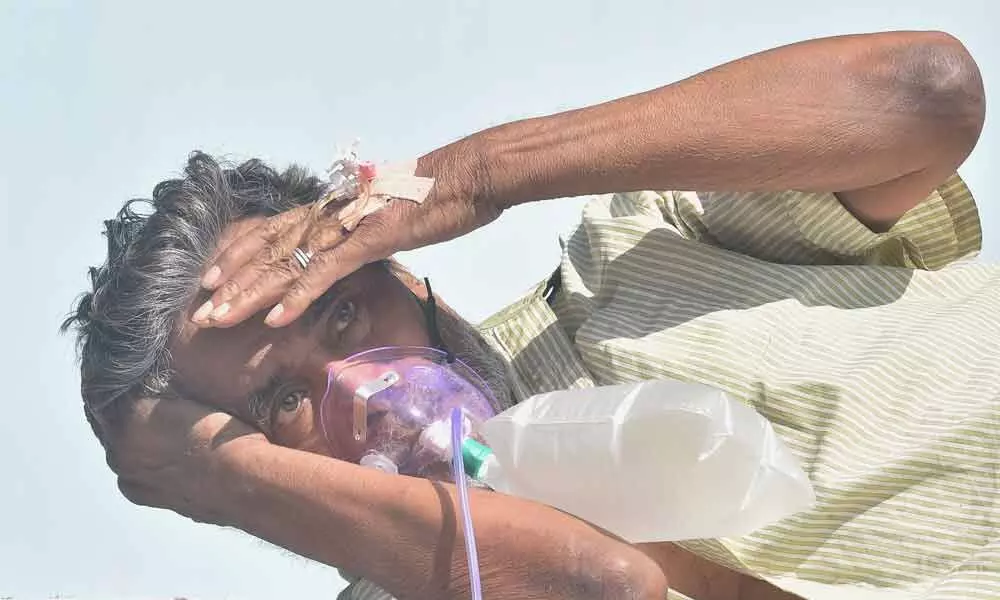Survivors face increased risk of death, serious illness: US study

Survivors face increased risk of death, serious illness
India’s graph may peak at 33-35 lakh active cases by May 15: Indian Institute of Technology scientists
New Delhi: Covid-19 survivors -- including those not sick enough to be hospitalised -- have an increased risk of death in the six months following diagnosis with the virus, according to the largest comprehensive study of long COVID-19 to date.
The research, published in the journal Nature, reveals the massive burden this disease is likely to place on the world's population in the coming years, they said. The researchers at Washington University School of Medicine in the US also have catalogued the numerous diseases associated with COVID-19, providing a big-picture overview of the long-term complications of COVID-19. They confirmed that, despite being initially a respiratory virus, long COVID-19 can affect nearly every organ system in the body. The study involved more than 87,000 COVID-19 patients and nearly five million control patients. "Our study demonstrates that up to six months after diagnosis, the risk of death following even a mild case of COVID-19 is not trivial and increases with disease severity," said study senior author Ziyad Al-Aly, an assistant professor of medicine at Washington University School of Medicine.
"Physicians must be vigilant in evaluating people who have had COVID-19. These patients will need integrated, multidisciplinary care," Al-Aly said. The researchers were able to calculate the potential scale of the problems first glimpsed from anecdotal accounts and smaller studies that hinted at the wide-ranging side effects of surviving COVID-19. These side effects include breathing problems, irregular heart rhythms, mental health issues and hair loss, they said. "This study differs from others that have looked at long COVID-19 because, rather than focusing on just the neurologic or cardiovascular complications, for example, we took a broad view and used the vast databases of the Veterans Health Administration (VHA) to comprehensively catalogue all diseases that may be attributable to COVID-19," said Al-Aly.
The researchers showed that, after surviving the initial infection --beyond the first 30 days of illness -- COVID-19 survivors had an almost 60 per cent increased risk of death over the following six months compared to the general population. The researchers noted that at the six-month mark, excess deaths among all COVID-19 survivors were estimated at eight people per 1,000 patients.
The ongoing second wave in India may peak between May 11-15 with 33-35 lakh total active' cases and decline steeply by the end of May, according to a mathematical module devised by IIT scientists. The scientists also said Delhi, Haryana, Rajasthan and Telangana may see a high of new cases by April 25-30, while Maharashtra and Chhattisgarh might already have reached their peak in new cases, Manindra Agrawal, professor at the Department of Computer Science and Engineering, IIT-Kanpur, told PTI. The scientists in the as yet unpublished study said there are several novel features in the SUTRA model. Whereas previous papers divided the patient population into asymptomatic and Infected, the new model also accounts for the fact that some fraction of asymptomatic patients could also be detected due to contact tracing and other such protocols.















